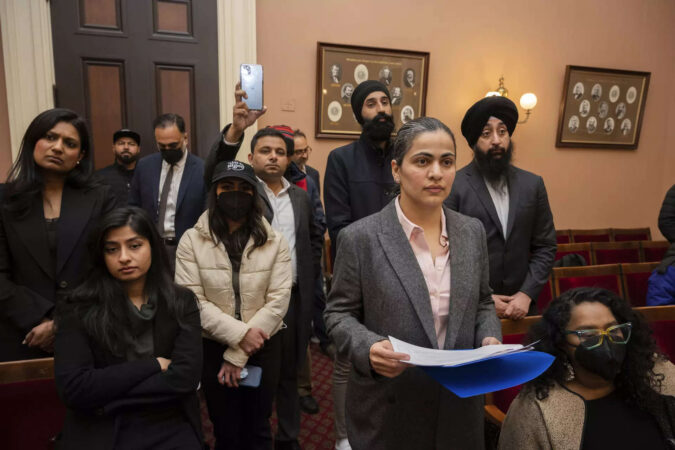The California Civil Rights Department dismissed its case alleging caste discrimination against two Indian-origin Cisco engineers, while keeping alive its litigation against the Silicon Valley tech giant. The two Cisco supervisors, Sundar Iyer and Ramana Kompella, were accused of harassing a Dalit employee. The suit fuelled a movement for equality and was named in an ordinance passed by Seattle city council in February against discrimination.
That case was dismissed by an order of the Santa Clara Superior County court last week.
The department sent a statement on Monday saying the case against Cisco “remains ongoing”. “We’ll continue to litigate the matter,” it said, adding that it remains committed to “securing relief and ensuring company wide, corrective action”. A Cisco spokesperson declined to comment. California’s suit against Cisco, filed in July 2020, alleges the Dalit engineer got less pay and fewer opportunities and that the defendants retaliated against him when he opposed “unlawful practices, contrary to the traditional order between Dalit and higher castes”. The engineer worked on a team at Cisco with Indians who all immigrated to US as adults, and all of whom were of high caste, the lawsuit stated.
The suit against Cisco and its engineers fuelled a movement against caste discrimination led by groups such as Dalit-led advocacy group Equality Labs. This lawsuit has also been named in groundbreaking actions including the first-in-the-nation ordinance passed by the Seattle City Council in February to include caste in its anti-discrimination laws. Last month, California Senator Aisha Wahab proposed a bill, which if it passes, could make the state the first in the US to outlaw caste-based bias.
The Civil Rights Department dismissing its case against the two engineers is a vindication for activists who have held the position that “the state has no right to attribute wrongdoing to Hindu and Indian Americans simply because of their religion or ethnicity,” said Suhag Shukla, executive director of the Hindu American Foundation. “Two Indian Americans endured a nearly three year nightmare of unending investigations, a brutal online witch hunt and a presumption of guilt,” she said.
Thenmozhi Soundararajan, founder and executive director of Equality Labs, said last week’s action “does not change anything” including the fact that the Cisco case “has given so many Dalits the courage to come forward with their stories about caste discrimination.” A mediation conference between Cisco and the Civil Rights Department has been set for May 2.
That case was dismissed by an order of the Santa Clara Superior County court last week.
The department sent a statement on Monday saying the case against Cisco “remains ongoing”. “We’ll continue to litigate the matter,” it said, adding that it remains committed to “securing relief and ensuring company wide, corrective action”. A Cisco spokesperson declined to comment. California’s suit against Cisco, filed in July 2020, alleges the Dalit engineer got less pay and fewer opportunities and that the defendants retaliated against him when he opposed “unlawful practices, contrary to the traditional order between Dalit and higher castes”. The engineer worked on a team at Cisco with Indians who all immigrated to US as adults, and all of whom were of high caste, the lawsuit stated.
The suit against Cisco and its engineers fuelled a movement against caste discrimination led by groups such as Dalit-led advocacy group Equality Labs. This lawsuit has also been named in groundbreaking actions including the first-in-the-nation ordinance passed by the Seattle City Council in February to include caste in its anti-discrimination laws. Last month, California Senator Aisha Wahab proposed a bill, which if it passes, could make the state the first in the US to outlaw caste-based bias.
The Civil Rights Department dismissing its case against the two engineers is a vindication for activists who have held the position that “the state has no right to attribute wrongdoing to Hindu and Indian Americans simply because of their religion or ethnicity,” said Suhag Shukla, executive director of the Hindu American Foundation. “Two Indian Americans endured a nearly three year nightmare of unending investigations, a brutal online witch hunt and a presumption of guilt,” she said.
Thenmozhi Soundararajan, founder and executive director of Equality Labs, said last week’s action “does not change anything” including the fact that the Cisco case “has given so many Dalits the courage to come forward with their stories about caste discrimination.” A mediation conference between Cisco and the Civil Rights Department has been set for May 2.
